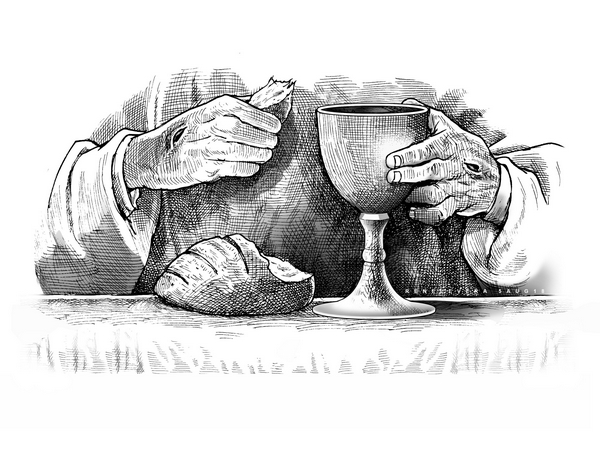
I was strapped for cash one day and hanging out in a mall, waiting for the wife who I hoped would have brought some funds, when a friend came and asked me to join him for coffee.
I feared the invitation, not so much because as usual we would be talking about nothing but his writing, as much as that in the end, again as usual, we would pay our bills separately, the reason why I prayed hard for the wife to appear before that moment, which unfortunately arrived before she did.
It felt as if I was facing a firing squad as I slowly went through the motions of getting my empty wallet, only to be granted a reprieve when I was stopped by the friend’s left hand, his right pulling out a billfold from a hip pocket. I made as if to insist on paying. But the friend must have sensed my half-heartedness because he just smiled and gave the money to the server.
Years later, from a coffee shop I saw an old man outside, a retired priest, the one who initiated me into the religious life. He looked in through the glass panel at me. He made a gesture of asking me to buy him coffee, by raising an invisible cup to his mouth. I recalled the incident at the mall and the friend’s compassion, apart from my past association with the priest, and at once told the barista to give an Americano to the holy old-timer.
These lines from a poem by Cesar Vallejo came to my mind:
I came to give myself that which perhaps was meant for someone else; and I think that, if I hadn’t been born, some other sucker would be drinking this coffee!
The title of the poem, “Our Daily Bread,” suggests the Lord’s Prayer. The coffee mentioned is the coffee that the speaker in the poem takes at breakfast, which reminds him of the poor to whom he desires to distribute bread just as Jesus did when he multiplied the loaves and fish.
If we recall, after they witnessed the miracle, the crowd followed Jesus wherever he went. To them, as recounted by John in his Gospel, Jesus said this:
“Amen, amen, I say to you, you are looking for me not because you saw signs but because you ate the loaves and were filled. Do not work for food that perishes but for the food that endures for eternal life, which the Son of Man will give you.”
When they asked for this food, Jesus added: “I am the bread of life; whoever comes to me will never hunger, and whoever believes in me will never thirst.”
I have often had no money and gone hungry but never without food. Thank God, the food was always there, although its availability did not always coincide with my real need and deep desire. Such food can only be the food that Jesus gives, knowing the extent of human hunger.
Although Vallejo, a socialist, suggests that it is looted from the rich, the food that the poor receive — and this is how I interpret the lines — comes to them because of Christ’s Resurrection, because it is obtained by “the two holy hands / that took flight unnailed from the Cross / with a stroke of light.”